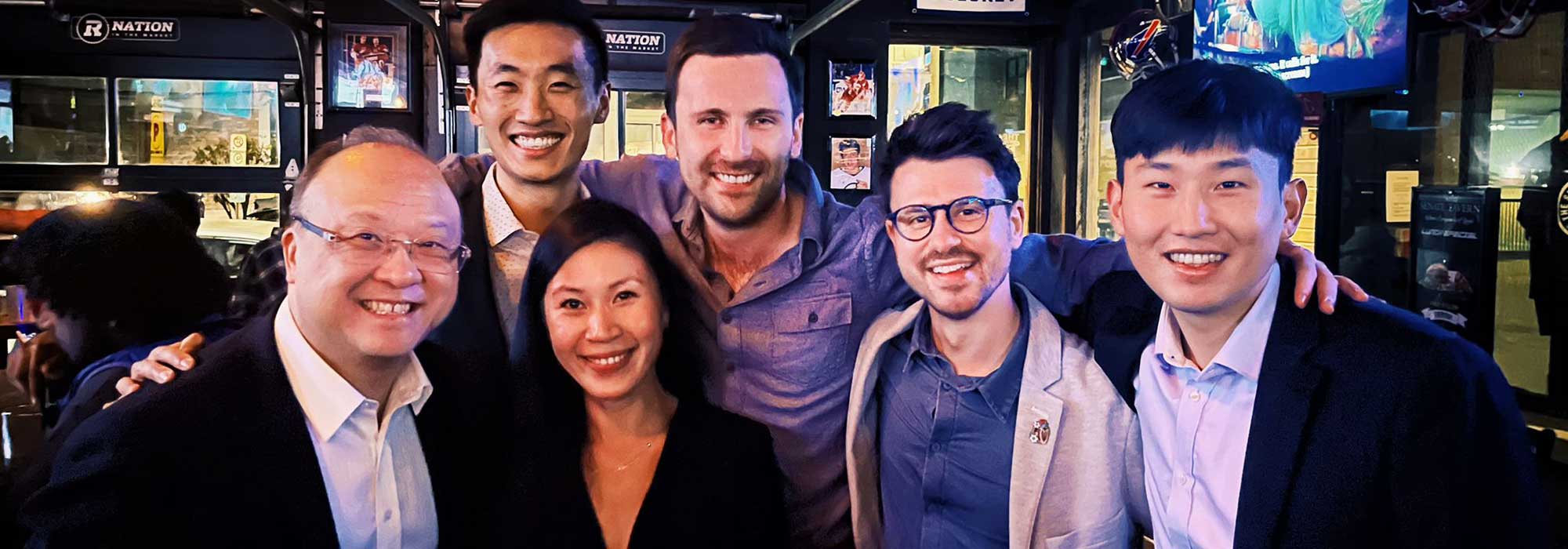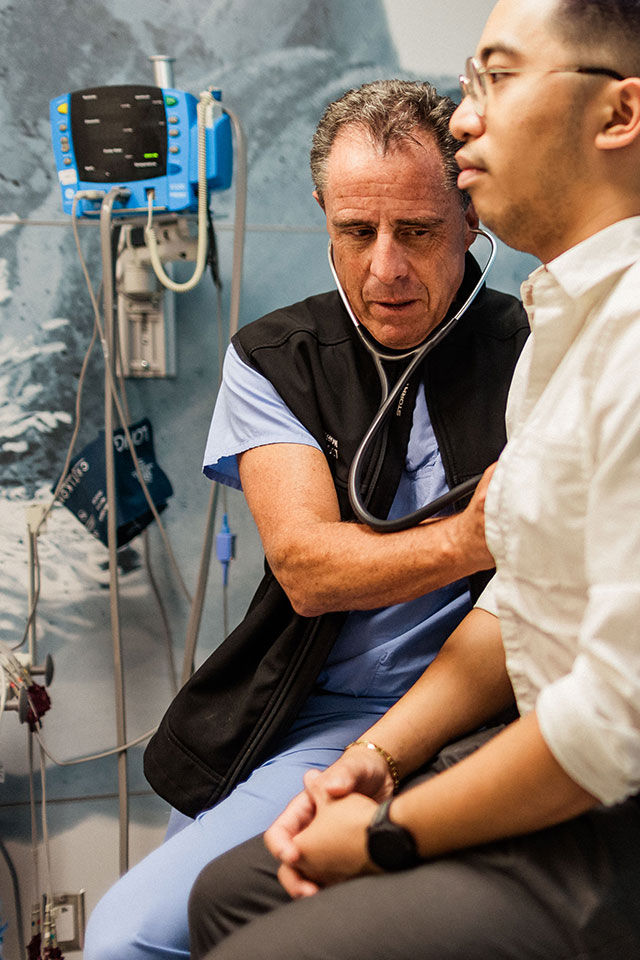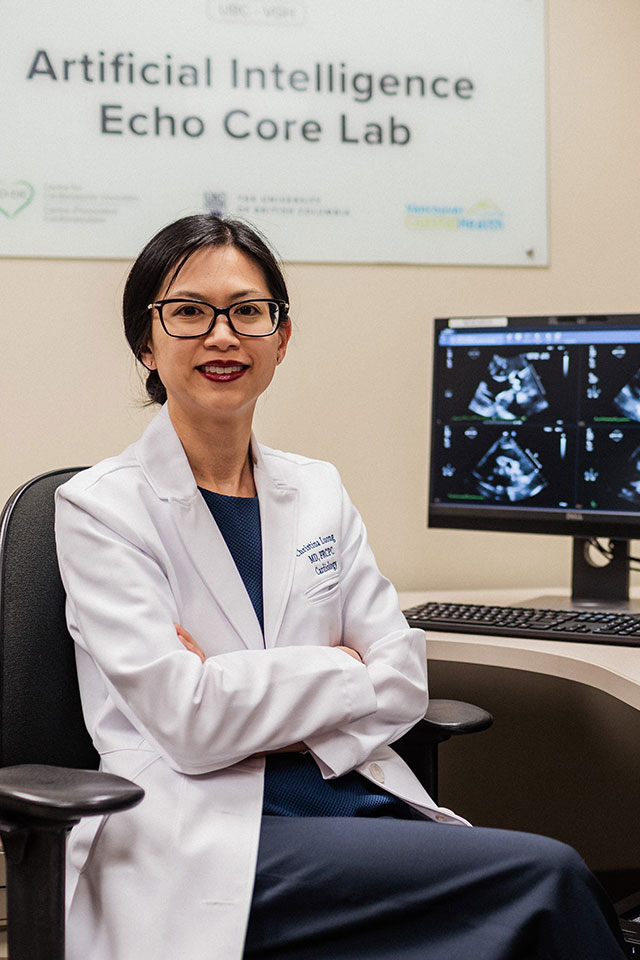
CARDIOLOGY RESIDENCY ACADEMIC OVERVIEW
Our new CBME Competency-Based Medical Education curriculum was launched in 2021 and we currently have all years following this new model of postgraduate medical education. The program leadership structure consists of the Program Director and Associate Program Director, the Resident Training Committee (RTC) and a number of academic advisors. The Resident Training Committee and our Academic Advisors are comprised of dedicated faculty from all of our teaching hospitals; the RTC also has Resident representatives which include our two Lead Residents.
The Program is fully accredited by the Royal College through to 2028.
We are committed to provide coaching and guidance for our residents throughout their 3 years in the Core Residency Program in order to maximize their clinical and academic success. Each resident is assigned to an Academic Advisor. Residents will meet with their Advisor prior to each Competence Committee meeting to review their educational portfolios and create individual learning plans to optimize learning goals and objectives.
The Cardiology program’s academic curriculum is always evolving to accommodate the needs of our residents. We have moved from time-based learning to individual achievement of clinical competence prior to graduation. The program is committed to evolving or creating new rotations as learning needs are identified by the residents and RTC or as a result of guidance from the Royal College. The Program Director and the Competence Committee constantly review each resident’s individual learning needs on at least a biannual basis and will modify individual learning curricula in order to accommodate individual learning needs.


ROTATION SCHEDULE
Below is our current scheduled of rotations per stage of training. These selections can be easily updated to accommodate individual training as suggested by the Competence Committee and RTC:
Year 1 - 13 blocks
Transition to Discipline (2 blocks) & Foundations (3 blocks) Three (3) blocks of consults cardiology – TTD / F (2 ea) One (1) blocks of cardiac care/coronary care unit (CCU/CICU) – TTD One (1) blocks of echocardiography – TTD / F Core of Discipline (Year 1 – 7 months) One (1) block of cardiac catheterization- TTD / F / C (ideally in Year 1) One (1) block of ambulatory cardiology clinic – C One (1) blocks of cardiac care/coronary care unit (CCU/CICU) – F One (1) blocks of echocardiography – C One (1) block of research – C One (1) block of graphics – C One (1) block of heart failure – C One (1) block of adult congenital heart disease – C One (1) block of consults cardiology- C Year 2 - 13 blocks
Core of Discipline (13 blocks) – C Two (2) blocks of consults cardiology- C One (1) blocks of cardiac care/coronary care unit (CCU/CICU) – C Two (2) blocks of echocardiography- C One (1) block of research- C One (1) block of ambulatory cardiology clinic – C One (1) block of elective- C Two (2) blocks of electrophysiology- C One (1) block of cardiac catheterization – C One (1) block of heart failure – C One (1) block of adult congenital heart disease- C One (1) block of cardiac rehabilitation- C One (1) block of cardiac imaging – C Year 3 - 13 blocks
Core of Discipline (9 blocks) & Transition to Practice (4 blocks) Two (2) blocks of echocardiography – C One (1) block of cardiac imaging – C One (1) block of cardiac imaging- C One (1) block of clinical – cardiac intensive care unit (CSICU RCH) -C Three (3) blocks of elective – C One (1) block of cardiac catheterization- C One (1) blocks of cardiac care/coronary care unit (CCU/CICU) – TTP One (1) block of consults cardiology – TTP One (1) block of ambulatory cardiology clinic – TTP One (1) block of research/GRAPHICS – TTP Residents in Year 3 prepare for Royal College exams, the program offers two (2) OSCEs to help residents practice for their exams and demonstrate knowledge and thought process.
ACADEMIC ACTIVITIES
The program also requires each resident to have a longitudinal experience with a dedicated clinical supervisor with a minimum (but not limited to) 23 clinics over their 3 years in the core program.
The program requires each resident to participate in at least one remote clinic experience; any incurred expenses are fully covered by the program.
Fellows’ rounds to medical residents/students
- CCU St. Paul’s teaching (during CCU rotation)
- CCU VGH teaching (during CCU rotation)
- CCU St. Paul’s biweekly Friday noon round (during CCU rotation)
- Presentation at internal medical residents’ academic half days (optional)
- OSCE Clinical exam/ECG teaching series to internal medicine residents (optional)
Academic activities – mandatory attendance
- Academic Half Day – Thursday afternoons 1-5 pm (in person recommended but virtual is an option)
- Cardiology Grand Rounds
- Working Cardiovascular Rounds
- Annual Clinical OSCEs
- UBC Cardiology Journal Club – part of AHD (twice a month)
Academic activities – Recommended
- UBC Postgraduate Medical Education Office: Transition into practice curriculum
- UBC Postgraduate Medical Education Office: Residents as Teachers module
- UBC Cardiology ACC and AHA Updates
- Law and Medicine Evening
What do Vancouver Fellows have access to?
- AHA membership – including JACC
- Canadian Journal of Cardiology membership
- UBC library membership
- UBC Resident Wellness Office
- Paid access to ACC Cardiosource
- C3s attend the Trainee Review Course offered by CCS to prepare for their exams. All costs are covered.
